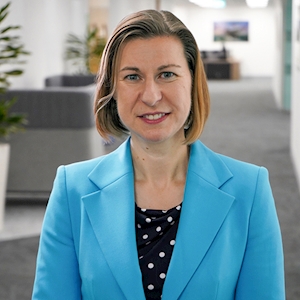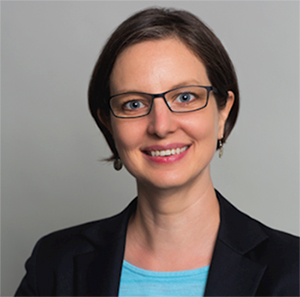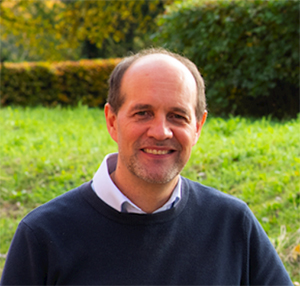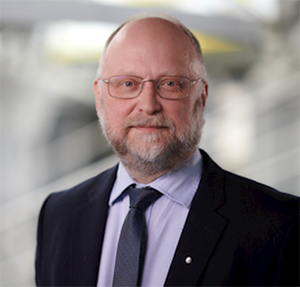BSRIA Briefing 2022 - from the outside looking in
[edit] Book Tickets
Friday November 11, 2022 from 9.00am - 4.00pm at the London Brewery. To book tickets visit here.
[edit] What can we learn about the built environment by looking at it from space?
Since ancient times the heavens have guided and intrigued those looking up. Space has long been a catalyst for the imagination, and fertile ground for technological exploration.
In more recent years, science and technology have made tremendous progress in space. Traditionally the reserve of Governments, increasing investment and the rise of private space companies have reduced costs, improved reliability, and increased the frequency of launches. 1000s of satellites now orbit the Earth.
Space exploration is producing new data sets, giving rise to new products and services, touching every corner of civilization: From the future of farming and food production, to better understanding the health of the Earth’s plant life and our changing climate.
The Global Methane Pledge, launched at COP26, will be supported by satellites which will track methane and carbon dioxide sources on Earth. In the built environment, smartphone and social media data from the ground can be combined with satellite data to better understand communities and infrastructure, and their impact on the planet.
Satellite data is not the only resource that space offers. Given the depletion of Earth’s natural resources, investment in new technologies will enable us to harvest vital resources from the cosmos. Science and technology could make it possible to boost our energy supply on Earth by capturing solar energy for use in orbital power stations.
[edit] We are in the early stages of an exciting era in human history!
The BSRIA Briefing 2022, held at the prestigious London Brewery, will address some of the key points currently being considered to maximise the benefits that space offers in the pursuit of quicker and more effective decarbonisation on Earth.
Our expert speakers will inform guests about the most innovative developments in space technology, its commercial aspects, and its amazing potential to help decarbonisation – along with the enormous challenges that need to be overcome.
Places are limited, so book now to avoid disappointment.
[edit] Your speakers
More speaker announcements coming soon!
[edit] 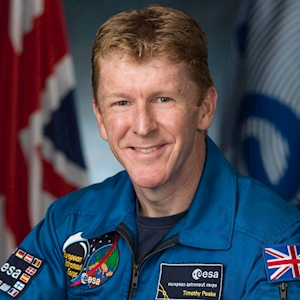
[edit] Tim Peake. Astronaut. European Space Agency
Tim was the first British ESA astronaut to visit the International Space Station. He launched on a Soyuz rocket on 15 December 2015 and landed back on Earth on Earth 18 June 2016 after 186 days in space.
During Tim's Principia mission to the International Space Station, he conducted a spacewalk to repair the Station's power supply. Other highlights saw him drive a rover across a simulated Mars terrain from space, taking part in over 250 scientific experiments for ESA and international partners and helping to dock two spacecraft to the Station. Over thirty education outreach projects were conducted during Tim's mission, which have reached more than two million students.
Tim is an ambassador for Science, Technology, Engineering and Maths (STEM) and works closely with the United Kingdom Space Agency (UKSA) and the UK government on their space, education and outreach programmes.
Tim sits on the Advisory Board for two 'new space' companies, Skyrora Ltd and Blue Abyss Diving Ltd. He was a founding member of the Defence Innovation External Advisory Panel in 2017, where he served for eighteen months.
[edit] Elizabeth Seward. Head of Strategy, Space. BAE Systems
Elizabeth Seward has over 20 years of experience in the space industry and is Head of Strategy - Space for BAE Systems, responsible for strategic topics and direction across defence and civil space. Prior to this, she was Senior Strategist for the Space Systems division of Airbus Defence and Space. Previous roles at Airbus included leading the Earth Observation, Navigation and Science marketing team, thermal engineering and mission systems engineering in the future programmes team, where she worked on projects such as the first study for the ExoMars rover and a mission to return a sample from an asteroid.
Elizabeth is the chair of the Women in Aerospace Europe UK local group and previous executive board member. She is also active in the International Astronautical Federation, sitting on the Entrepreneurship and Investment committee, the Honours and Awards committee, the GEOSS committee and is a previous vice chair and continuing committee member of the Workforce Development and Young Professionals Committee.
As a STEM outreach ambassador, Elizabeth has presented to groups and schools, and has made appearances as a space expert in various media.
Elizabeth has an MPhys degree in Physics with Space Science & Technology from the University of Leicester.
[edit] Adina R. Gillespie, Director of Business Development, Europe, GHGSat
GHGSat provides actionable greenhouse gas emissions data and insights to businesses, governments, financial markets, and regulators worldwide. The firm is the first to combine its own satellite and aircraft sensors, offering greater data accuracy and facilitate timely strategic decision-making insights at a fraction of the cost of other technologies. With proprietary remote-sensing capabilities and patented technology, GHGSat can monitor emissions from individual facilities.
Adina is responsible for GHGSat business development and expansion in Europe, including GHGSat’s contributions to the European Space Agency fleet of satellites. She has more than 15 years’ experience delivering programs and strategic advice in the application of small satellite technology, including for governments and commercial users. Adina has headed the UK’s operational contribution to the International Disasters Charter and coordinated UK Civil Contingencies Secretariat access to the Charter. She serves on the advisory board of the World Geospatial Industry Council and various advisory boards to the UK Space Agency.
[edit] Dr Quillon Harpham, Technical Director, Floods and Water Management Group, HR Wallingford
Dr Quillon is a chartered scientist with a PhD in Hydroinformatics, an MSc in Numerical Analysis, a BSc in Mathematics and 25 years’ experience of water cycle information systems and data. He has designed, coded and implemented projects across all stages of the development cycle from inception through to post-implementation review, with multiple awards successes including the UK IT Industry emerging technology of the year.
Always seeking to provide innovative and sensible solutions, his specialisations include data and information management; analysis and design; model and data integration; workflow; marine data; usability and standardisation. Dr Harpham will explore how data from observation satellite can be used to help urban water and management planning.
[edit] Phil Evans. Director-General, EUMETSAT
Phil Evans became EUMETSAT’s fifth Director-General on 1 January 2021. Phil brings to the role the experience gained from his long career in Board positions at the UK Met Office and a background in remote sensing and satellite instrumentation. More recently he led the provision of services and policy advice to governments and was the Met Office Chief Operating Officer. He also brings a strong commitment to collaboration with partners around the globe.
Phil’s guiding principle is that working with partners, from Member States’ meteorological services to global satellite agency alliances, will be essential as extreme weather events will exact an increasingly heaving social and economic toll on communities. Monitoring those events in order to mitigate their impact and measure the effect of climate regulations will be crucial over the next 50 to 100 years.
After leaving the Met Office and before joining EUMETSAT, Phil was Director of Physics Programmes at the Institute of Physics, in 2020. There, he was a member of the Executive Board and Board of Trustees.
[edit] Anthony Baker, CEO, Satellite Vu
Anthony Baker is the CEO of Satellite Vu an earth observation company specializing in providing actionable insights from satellites to address global challenges such as climate change by detecting where we are wasting energy; data that also brings insights to business to make better commercial decisions. Satellite Vu intends to launch a small constellation of infrared satellites to monitor the temperature of any building on the planet in near real time to determine valuable insights into economic activity, energy efficiency and carbon footprint.
He has over 20 years’ experience in innovative satellite companies with roles in both commercial and government organisations. He has held roles as first CEO at Es’hailSat – The Qatar Satellite Company, Vice President at SES of Luxembourg, and employed at AsiaSat in Hong Kong, NATO in the Netherlands and OFCOM in London.
Book Tickets
Novermebr 11, 2022 from 9.00am - 4.00pm you can book tickets here.
This article appears on the BSRIA news and blog site as "BSRIA Briefing 2022 - from the outside looking in" dated October, 2022.
--BSRIA
[edit] Related articles on Designing Buildings
Featured articles and news
Managing building safety risks
Across an existing residential portfolio, a client's perspective.
ECA support for Gate Safe’s Safe School Gates Campaign.
Core construction skills explained
Preparing for a career in construction.
Retrofitting for resilience with the Leicester Resilience Hub
Community-serving facilities, enhanced as support and essential services for climate-related disruptions.
Some of the articles relating to water, here to browse. Any missing?
Recognisable Gothic characters, designed to dramatically spout water away from buildings.
A case study and a warning to would-be developers
Creating four dwellings... after half a century of doing this job, why, oh why, is it so difficult?
Reform of the fire engineering profession
Fire Engineers Advisory Panel: Authoritative Statement, reactions and next steps.
Restoration and renewal of the Palace of Westminster
A complex project of cultural significance from full decant to EMI, opportunities and a potential a way forward.
Apprenticeships and the responsibility we share
Perspectives from the CIOB President as National Apprentice Week comes to a close.
The first line of defence against rain, wind and snow.
Building Safety recap January, 2026
What we missed at the end of last year, and at the start of this...
National Apprenticeship Week 2026, 9-15 Feb
Shining a light on the positive impacts for businesses, their apprentices and the wider economy alike.
Applications and benefits of acoustic flooring
From commercial to retail.
From solid to sprung and ribbed to raised.
Strengthening industry collaboration in Hong Kong
Hong Kong Institute of Construction and The Chartered Institute of Building sign Memorandum of Understanding.
A detailed description from the experts at Cornish Lime.








